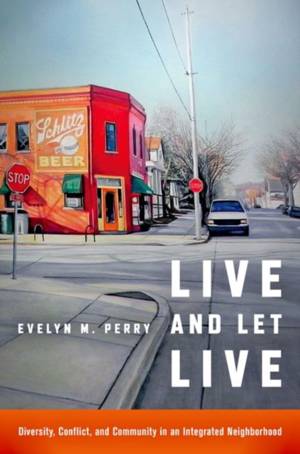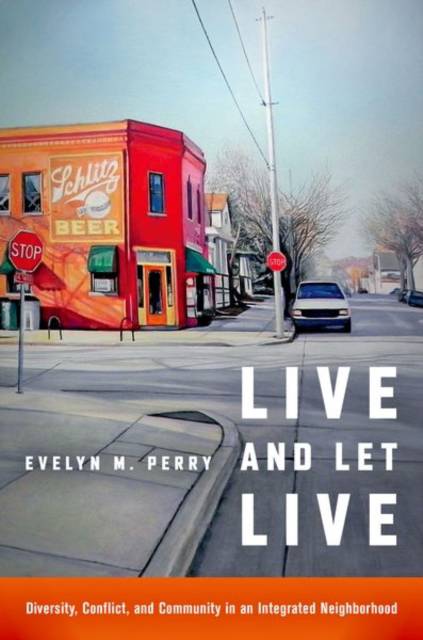
- Afhalen na 1 uur in een winkel met voorraad
- Gratis thuislevering in België vanaf € 30
- Ruim aanbod met 7 miljoen producten
- Afhalen na 1 uur in een winkel met voorraad
- Gratis thuislevering in België vanaf € 30
- Ruim aanbod met 7 miljoen producten
Live and Let Live
Diversity, Conflict, and Community in an Integrated Neighborhood
Evelyn M PerryOmschrijving
"We are in a bind," writes Evelyn M. Perry. While conventional wisdom asserts that residential racial and economic integration holds great promise for reducing inequality in the United States, Americans are demonstrably not very good at living with difference. Perry's analysis of the multiethnic, mixed-income Milwaukee community of Riverwest, where residents maintain relative stability without insisting on conformity, advances our understanding of why and how neighborhoods matter. In response to the myriad urban quantitative assessments, Perry examines the impacts of neighborhood diversity using more than three years of ethnographic fieldwork and interviews. Her in-depth examination of life "on the block" expands our understanding of the mechanisms by which neighborhoods shape the perceptions, behaviors, and opportunities of those who live in them. Perry challenges researchers' assumptions about what "good" communities look like and what well-regulated communities want. Live and Let Live shifts the conventional scholarly focus from "What can integration do?" to "How is integration done?"
Specificaties
Betrokkenen
- Auteur(s):
- Uitgeverij:
Inhoud
- Aantal bladzijden:
- 248
- Taal:
- Engels
Eigenschappen
- Productcode (EAN):
- 9781469631387
- Verschijningsdatum:
- 27/02/2017
- Uitvoering:
- Paperback
- Formaat:
- Trade paperback (VS)
- Afmetingen:
- 155 mm x 229 mm
- Gewicht:
- 340 g

Alleen bij Standaard Boekhandel
Beoordelingen
We publiceren alleen reviews die voldoen aan de voorwaarden voor reviews. Bekijk onze voorwaarden voor reviews.








